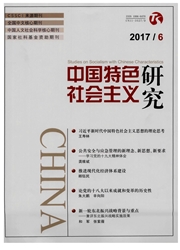

 中文摘要:
中文摘要:
文章将闽江流域上下游视为一个由生态服务供求双方形成的虚拟市场,运用条件价值评估法(CVM),开展闽江流域生态服务补偿的支付意愿(wTP)与受偿意愿(WTA)调查。结果表明:流域居民生态保护意识较强,参与生态服务补偿的意愿较高,但上下游居民的生态建设责任认知存在差异,补偿意愿差距较大。同时,测算得基于CVM的闽江流域生态服务补偿标准为125 102.21万元/年,远高于现行补偿标准。因此,政府应结合居民的补偿意愿,多渠道筹集补偿资金,逐步提高补偿标准,同时,拓宽农民收入来源,夯实农民增收基础。
 英文摘要:
英文摘要:
In this paper, it tooks Minjiang River Basin as the research object, conducting field surveys about the WTP and WTA of the residents, using contingent valuation method ( CVM ) . The conclu- sions are as follows: (1) residents' concept of environment protection is strong, and they are very willing to take part in the project; (2) the cognitive responsibility of ecological construction between downstream and upstream residents is different, and it has large gap between their WTP and WTA; (3) the ecological compensation standard of Minjiang River Basin based on CVM is 1. 251 022 1 bil- lion RMB/year, it is much higher than the current compensation standard. Therefore, the government should fully consider residents' willingness to compensate, raise compensation funds through various channels, and gradually increase compensation standard of farmers and increase their income. , at the same time, broaden the income source of farmers and increase their income.
 同期刊论文项目
同期刊论文项目
 同项目期刊论文
同项目期刊论文
 期刊信息
期刊信息
